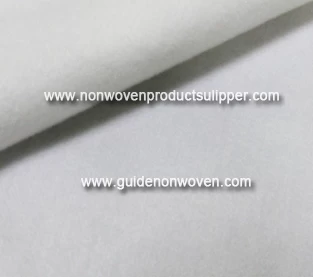Product: ES Material Fiber Nonwoven Fabric For Packaging
Raw Material: PP+PE
Nonwoven Technology: thermal bonded
Dotted Design: dot or plain
Gram: 25 gsm - 30 gsm
Color: White
Specification: custom
Sample: Can be provided without charge, freight to be collect
Applications:
Medical(20-60gsm): face masks,diapers,bed sheets,curtains,pillow covers,sanitary,etc
Packaging(25-30gsm): tea bag, coffee bag/filter paper, dust-proof covers.etc
Product: ES Thermal Bonded Non Woven Fabric For Tea Bag
Raw Material: PP+PE
Nonwoven Technology: thermal bonded
Dotted Design: dot or plain
Gram: 25 gsm - 30 gsm
Color: White
Specification: custom
Sample: Can be provided without charge, freight to be collect
Applications:
Medical(20-60gsm): face masks,diapers,bed sheets,curtains,pillow covers,sanitary,etc
Packaging(25-30gsm): tea bag, coffee bag/filter paper, dust-proof covers.etc
Product: Composite Non Woven Paper Desiccant Packaging Material
MOQ: 1000 kg
Material: Composite Non Woven Paper
Specification: Custom sizes.
Design: Welcome custom logo and design. Welcome OEM.
Color: Full Color of CMYK,Pantone Color as customer requirements
Weight: Based on size & material,thickness
Delivery Time: 10-15 days after confirmed the final artwork and order
Product: Desiccant Wrapping Paper
MOQ: 1000 kg
Material: DuPont Material
Specification: Custom sizes.
Design: Welcome custom logo and design. Welcome OEM.
Color: Full Color of CMYK,Pantone Color as customer requirements
Weight: Based on size & material,thickness
Delivery Time: 10-15 days after confirmed the final artwork and order
Product: Bi-component Non Woven Fabric Desiccant Packaging Material
MOQ: 1000 kg
Material: Bi-component Non Woven Fabric
Specification: Custom sizes.
Design: Welcome custom logo and design. Welcome OEM.
Color: Full Color of CMYK,Pantone Color as customer requirements
Weight: Based on size & material,thickness
Delivery Time: 10-15 days after confirmed the final artwork and order
Product: Spunbond Non Woven Fabric Custom Desiccant Packaging Material
MOQ: 1000 kg
Material: Spunbond Non Woven Fabric
Specification: Custom sizes.
Design: Welcome custom logo and design. Welcome OEM.
Color: Full Color of CMYK,Pantone Color as customer requirements
Weight: Based on size & material,thickness
Delivery Time: 10-15 days after confirmed the final artwork and order
